Afghanistan War, Civil Liberties, Criminalizing Dissent, Habeas Corpus, Human Rights, Surveillance, Targeting Muslims, Torture, Truth to Power
Podcast: Play in new window | Download
Updates:
——

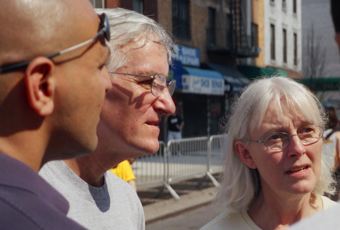
Rachel Corrie Lawsuit In Israel
Rachel Corrie, an American student activist and human rights defender from Olympia, Washington, was crushed to death on March 16, 2003, by a Caterpillar D9R bulldozer while nonviolently protesting Palestinian home demolitions with fellow members of the International Solidarity Movement.
The first phase of the trail began in March 2010, when the Corrie family presented its witnesses, including several of Rachel’s colleagues from ISM who witnessed her killing. During the second phase of the trial, which began last month, the government presented several witnesses, including the Israeli military police investigator who headed the investigation into Rachel’s death, and the bulldozer operators who struck and killed her.
The lawsuit charges that Rachel’s killing was intentional. It also charges that the Israeli government was negligent for allowing Israeli soldiers and military commanders to act recklessly using an armored military bulldozer without regard to the presence of unarmed, nonviolent civilians in Rafah, Gaza Strip. Lastly the lawsuit alleges that the Israeli military failed to take appropriate and necessary measures to protect Rachel’s life, in violation of obligations under Israeli and international law.
Katherine Gallagher:
- Rachel had been serving as a peace activist with the Palestinian International Solidarity Movement.
- The case is unfortunately taking quite a while, it was filed back in 2005, then the evidentiary phase opened in 2010. At that point the Corrie’s were able to call their own witnesses. They also called an expert who could speak about how to conduct a proper investigation.
- The investigator testimony revealed huge errors in the way the investigation was carried out.
- Errors include: The bulldozer was removed from the scene of the killing. There were investigators in the case who never went to the scene of the crime.
- On October 7, right before testimony, it was permitted that soldiers involved in the incident be allowed to testify behind a screen.
- This is an extraordinary step, the family if unable to see those soldiers who are able to provide some answers even through their body language as they testify.
- For the Corries who have waited 7 and a half years for some answers, that they won’t be able to assess the credibility by his body language is a significant blow.
- When you say the name Rachel Corrie in Israel, people know who she is.
- CCR Lawsuit: Caterpillar had aided and abetted war crimes and other serious violations of international law.
- It struck how Jerusalem has changed. There’s been a massive amount of construction in the old city and particularly around East Jerusalem.
Guest – Katherine Gallagher, Senior Staff Attorney at the Center for Constitutional Rights, where she focuses on holding individuals, including US and foreign government officials, and corporations, including private military contractors, accountable for serious human rights violations. Among the cases she is working on are Arar v. Ashcroft, Matar v. Dichter, Saleh v. Titan and Estate of Atban v. Blackwater.
——
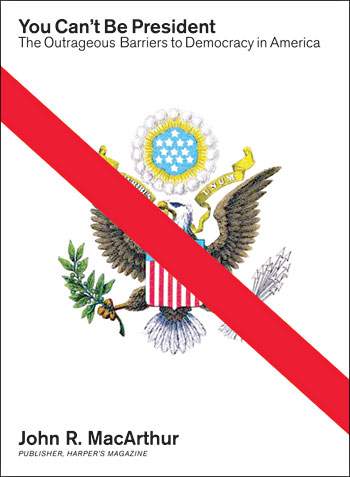
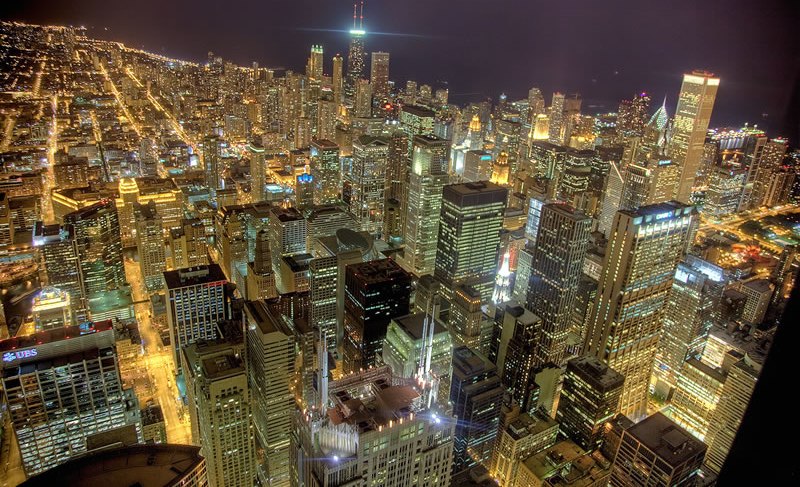
You Can’t Be President: The Outrageous Barriers to Democracy in America
John Rick MacArthur is the president and publisher of Harper’s Magazine. He’s an award winning journalist and author. We want to talk with Rick about his third book titled You Can’t Be President: The Outrageous Barriers to Democracy in America and explore the topic of who finances the Republican and Democratic parties. A recent book review states, that it (quote) advances a familiar argument: that moneyed and privileged interests, rather than the needs and opinions of ordinary citizens, dominate contemporary American politics. MacArthur, begins by lamenting the lack of basic comprehension of the Constitution and American government on the part of the political and media elite. The book also criticizes Barack Obama and Hillary Clinton.
Rick MacArthur:
- There are two balance sheets, there’s one with regard to the people of the United States and the other which I talk about in You Can’t Be President is the internal party structure.
- The balance sheet for the people is bad, we are now enmeshed even more in a self destructive war if possible than Iraq was. Afghanistan is a disaster and you don’t have to ask a peacenik.
- You have a fake health care reform which really reinforced the power of the insurance companies.
- You have a very feeble reform of Wall Street. You have a continuation of anti-labor,orthodox “free trade” policies. You have the continued corruption of the lobby system in Washington.
- Coming from Chicago, if Obama attacked the lobby system it would be like committing political suicide.
- Obama broke every record in corporate fund raising, PAC fund raising. He raised money from Jack Abramoff’s old law firm.
- In sum, he’s (Obama) has been an anti-reformer, anti-progressive.
- On civil liberties, if you criticize Bush it’s great, if you criticize Obama, you can hear a pin drop.
- I met someone who did a tour of the new prison in Baghram, Afghanistan. He said it was terrifying.
- You have to understand that the Chicago machine, is the most powerful local machine in the country.
- Almost every important job in the county is held by a Democrat. The mayor of Chicago is very much like the dictator of Chicago. Obama came out of the most intolerant, the most monopolistic, one sided political machine in the country.
- Murdoch’s bundled campaign contributions were 50/50 between Clinton and Obama.
- I don’t see why we can’t organize around an opposition candidate, raise some money.
- I think what you’re seeing is disillusionment among the party leadership with Obama, because he hasn’t delivered the goods.
- They wanted Obama to deliver the 2016 Olympics to Chicago.
- Obama is a tremendously prudent and cautious politician, there’s no audacity at all.
Guest – John Rick MacArthur, an American journalist and author of books about US politics. He is the president of Harper’s Magazine. MacArthur has been a reporter for The Wall Street Journal (1977), the Washington Star (1978), The Bergen Record (1978–1979), Chicago Sun-Times (1979–1982), and an assistant foreign editor at United Press International (1982).
Civil Liberties, Criminalizing Dissent, Extraordinary Rendition, FBI Intrusion, Habeas Corpus, Human Rights, Military Tribunal, Supreme Court, Surveillance, Targeting Muslims, Torture
Podcast: Play in new window | Download
Updates:
- Anwar Al-Aulaqi Case – Drones Targeting US Citizens – Obama Wants To Dismiss CCR/ACLU Case
- CCR Guantanamo So Called Suicide Cases
- Supreme Court Will Not Review Case On Feds Wiretapping Guantanamo Lawyers
- Bombing of the USS Cole – Could Prosecutors Use The Fruit From the Poisonous Tree?
—-
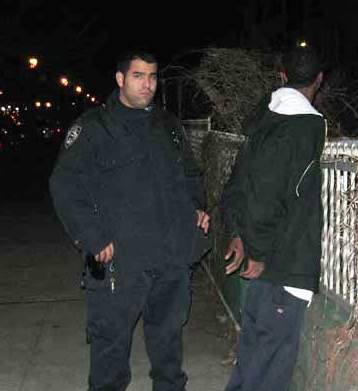
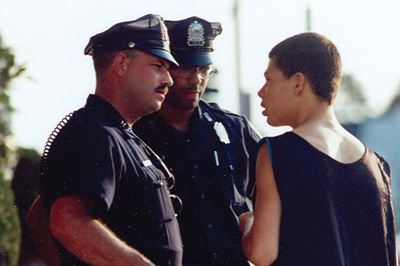
NYC NLG Street Law and Racial Profiling Program
Today we’re joined by Paula Segal and Gabriela Lopez with the New York City Lawyers Guild Street Law Clinic Program. The project sends groups of attorneys to conduct “Street Law” workshops with a range of students in high school. We’re also joined by students from the Aarturo A. Schomburg Satellite Academy High School who were part of the street law classes.
Street Law Students:
- In my neighborhood it’s really common for the Police to bother you for no reason. I don’t think they had the right to go into my pockets unless they had reasonable suspicion. This happens at least 3 times a week.
- One time they took me into the precinct, took my picture, ran my fingerprints.
- I was getting off the train and these two big police men were getting off the train and they stopped me. They said we have her on the walkie-talkie. This women said take off your sneakers. She kept asking, where is it? Where is it? That’s when she started to get physical and she lifted up my shirt. “If you don’t f-in’ tell me where it’s at, I’m going to strip search you. It happened on Elder Avenue, next to the 6 train.
- They say no, we’re not going to touch you, then he throws me on the car.
- You guys are unfolding my socks right now, and I don’t like this. There’s a certain way that I fold my socks.
- After they find nothing, they say you should change your attitude. I said, you should change your attitude.
- A lot of cops judge character, when I see cops, you have to give them an expression. Hey look I’m out here, I’m not tryin to get in that car.
- I’m thinking about the cops catching the real villans. If you’re really guilty you’re going to get hassled, if you’re not guilty,then you can be free. The advice I get from the street law project is not consenting to the search.
- From my knowledge, the cops need a certain amount of arrests at the end of the month, so they’ll pick on anybody. They curse a lot. Undercover cops, they’ll probably have on a hoodie, try to fit in with everybody else, it just don’t work.
- Law Student Paula Segal: We focus on giving people tools to walk away, to avoid arrest.
- Law Student, Street Law Coordinator Gabriella Lopez: Last year we went to more than sixty different sites. Sixty to Seventy different trainings that occured last year.
- Email the Street Law Team – streetlawteam@gmail.com
Guests – Paula Segal and Gabriela Lopez with the New York City Lawyers Guild Street Law Clinic Program. Aarturo A. Schomburg Satellite Academy High School Students: Charisma Whaley / Joseph Campbell / Kiara Avila / Stephanie Colon / Jonathan Jeffries.
—-
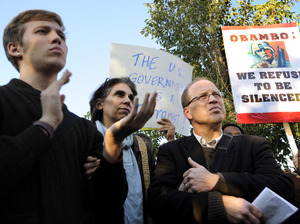

Grand Juries Historically and the Minneapolis / Chicago FBI Raids
A total of 12 people were served with subpoenas during last months FBI raids in Minneapolis and Chicago. The FBI targeted anti-war peace activists and key organizers of demonstrations and marches who have been asked to appear before a grand jury. What is a grand jury? Historically, a grand jury was supposed to be citizens coming together to determine if charges should be filed criminally against someone. Today, it’s very different. It’s mostly a rubber stamp for what the prosecutors want. If you refuse to testify at a grand jury, you can be taken to a judge to answer questions. If you refuse to answer those questions you could be put in jail.
Margaret Ratner-Kunstler:
- If you were subpoenaed before a grand jury in 1968 and you asserted your grand jury right, then that really was the end of your participation in the grand jury.
- You asserted immunity and if you we’re given immunity, you couldn’t be indicted.
- Immunity: Nothing you say could be used against you, but anything you testified about could not be the subject of a criminal indictment against you. Your words could not be held against you, or the fruits of those words. But it’s so easy to get around that, by a prosecutor saying, this didn’t come from this.
- If you then refused to testify given this minor immunity, you could be subject to imprisonment.
- If you refuse to testify you’re brought back before the judge and the judge then holds you in “civil contempt.”
- The grand jury is usually about 18 months. The grand jury in Chicago is a special grand jury which means it’s twice as long.
- That’s important because if you’re held in civil contempt, the keys to the jail are in your pocket. You’re in jail for as long as you refuse to testify.
- If you say something you could wave your fifth amendment right by already saying something.
- The recent FBI raids represents the tremendous see-change we have in terms of the ability for people to actively oppose this government’s policy.
- In 1983, there were many groups in this country who were joining forces with progressive groups in Central America. You had the Committee in Solidarity With the People Of El Salvador.
- Each of the 11 individual persons subpeoned wrote letters to the Attorney General saying that they would assert their fifth amendment right and that they would not testify.
- If they can’t get you on a federal charge it’s often that they’re looking for a mistake you made in conversation, even an informal conversation with a federal official.
Guest – Magaret Ratner-Kunstler, an attorney in private practice. As education director at the Center for Constitutional Rights, she originated the Movement Support Network and authored “If an Agent Knocks.” Kunstler is the President of the William Moses Kunstler Fund for Racial Justice, a foundation established in 1995 in the memory of her late husband to combat racism in the criminal justice system.
———————
Afghanistan War, CIA Sponsored Terror, Criminalizing Dissent, Human Rights, Iraq Veterans, Iraq War, Targeting Muslims, Torture, Truth to Power, War Resister
Podcast: Play in new window | Download
WBAI Listeners Please Click Here For This Week’s Rundown
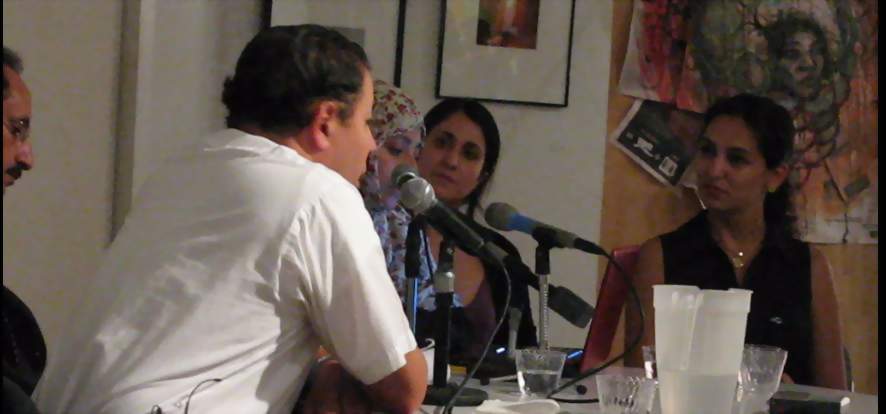

The United States and Yemen: Destroying Lives in the Name of National Security
We hear the voices of leading Yemeni activists and a Center For Constitutional Rights attorney speak on state violence, targeted killings, and human rights abuses enabled by the so-called “War on Terror” from the Brecht Forum event titled The United States and Yemen: Destroying Lives in the Name of National Security. The event was co-sponsored by the International Federation for Human Rights and the Brecht Forum. We hear first from Pardiss Kebriaei staff attorney at the Center for Constitutional Rights. Pardiss is working on a lawsuit to challenge a U.S. government kill-list and the targeting of a U.S. citizen now in Yemen and far from any armed conflict with the United States.
We hear from Tawakkol Karman chairwoman of the Yemeni non-government organization Women Journalists Without Chains, which campaigns for freedom of the press in Yemen and against human rights violations. She is a very prominent young activist, and Reporters Without Borders chose her in 2009 as one of the top seven women who have led change in the world. Karman is among the activists who in 2007 launched the “Phase of Protests and Sit-ins” in Yemen, holding regular sit-ins in the capital’s Freedom Square to demand democratic reforms and an end to human rights violations—including the harassment and imprisonment of journalists and dissidents, closure of critical newspapers, and censorship of news articles. A special thanks to Leili Kashani Education and Outreach Associate for the Guantánamo Global Justice Initiative at the Center for Constitutional Rights.
Also on the panel, to be heard soon, Ezz-Adeen Al-Asbahi, president of Human Rights Information & Training Center (HRITC), a non-governmental organization which seeks to enhance human rights in Yemen and the Arab World, focusing on the Gulf States in particular. HRITC has consultative status with the United Nations, offers training courses and forums on human rights, publishes a quarterly human rights magazine called Our Rights, and has published 30 books on law and human rights. Al-Asbahi is also the coordinator of a large regional network of human rights activists in the Gulf States and the Peninsula, and the president of a Yemeni network of human rights organizations which includes six Yemeni NGOs. A journalist and researcher, he has published eight books on literature and human rights. He is also the head of the civil society sector of the Supreme National Authority to Combat Corruption.
—-

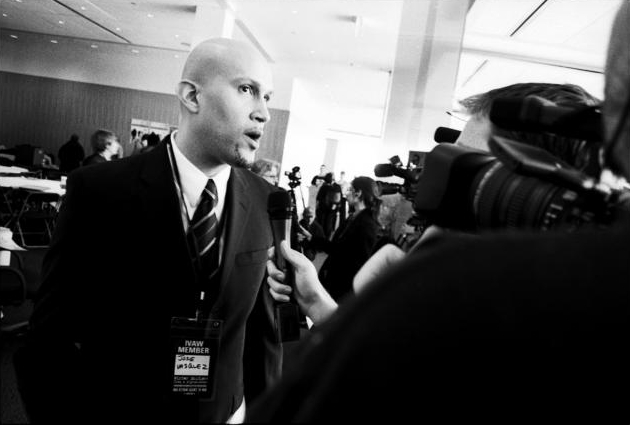
Troops out of Iraq, Permanent Bases and Privatizing the Occupation.
While many reports claim most US troops are leaving Iraq, there will still be 50 thousand troops remaining, 4 thousand will be replaced by 7 thousand security contractors. These are armed private contractors, former military with specialized skills in weaponry, radar and explosives. They will have less accountability in war zones. Meanwhile, massive permanent US bases remain including the world’s largest US Embassy in Bagdhad, Iraq. As the occupation in Iraq is privatized, veterans return back to the US. We’re joined today by conscientious objecter and Executive Director of Iraq Veterans Against the War, Jose Vasquez. Jose joined IVAW in June 2005 and co-founded the NYC chapter serving as the president. He also served on the interim board of directors and was elected to the first official board in 2006. He helped organize numerous actions and events including the Veterans’ and Survivors’ March to New Orleans, Operation First Casualty in NYC, and Winter Soldier: Iraq and Afghanistan.
Jose Vasquez:
- IVAW is a membership based organization, we are all folks who’ve served since September 11th.
- We call for the immediate withdrawal of all occupying forces from Iraq. We also have the same resolution for Afghanistan. We also want reparations for the Iraqis and full benefits for returning service members.
- I signed up right out of high school, graduated in ’92. I went straight in to active duty, I served 4 years as a Calvary Scout. Got out went to school and the Army Reserves as a medic.
- I had been in the military for a while before September 11th. I had a pretty good understanding of what our relationship was to Iraq. It was confusing to me, I was facing deployment. I stumbled across Democracy Now and I just started listening to that show religiously.
- By 2004, I was so upset about the Iraq War, I didn’t care what happened, I was not going to this.
- I started researching conscientious objection, six months later I filed for CO status. It took 27 months to get an answer.
- The Obama Administration has a finger on the pulse in terms of marketing hope. What they’re skimming over is how contractors are on the ground (in Iraq)
- From the perspective of an Iraqi, Americans running around with guns has not diminished that much.
- I think we owe the people of Iraq a lot. This mostly has to do with the US positioning itself to access the resources that they have.
- Stop the deployment of PTSD troops
Guest – Jose Vasquez, Jose was born in Bronx, NY and grew up in Southern California from the age of nine. After graduating high school in 1992, he enlisted in the U.S. Army serving over four years of active duty as a cavalry scout assigned to the 2nd Battalion, 69th Armor Regiment, 24th Infantry Division at Fort Benning, GA, and the 3rd Squadron, 4th Cavalry Regiment, 25th Infantry Division at Schofield Barracks, HI. He was honorably discharged in December 1996 at the rank of specialist (E-4).
Civil Liberties, Criminalizing Dissent, Habeas Corpus, Human Rights, Military Tribunal, Political Prisoner, Prison Industry, Supreme Court, Targeting Muslims, Torture, Truth to Power
Podcast: Play in new window | Download
Updates:
—
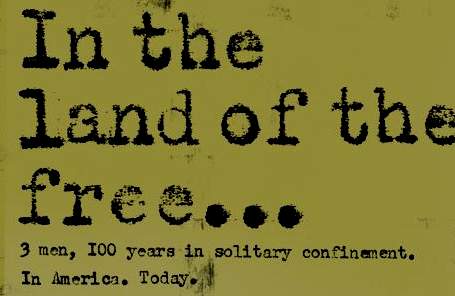
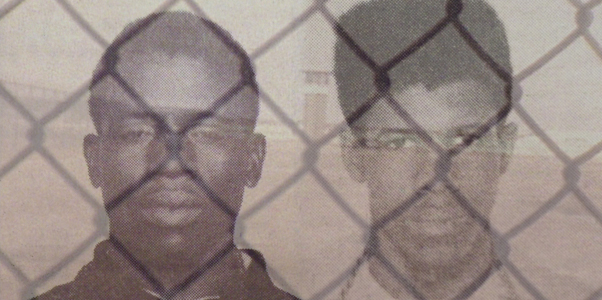
In the Land of the Free, a film by Vadim Jean
Director Vadim George joins us to discuss his recent documentary film “In the Land of the Free.” As many listeners may know, the Angola 3 are Robert King, Albert Woodfox and Herman Wallace. Each had arrived to the Louisiana State Penitentiary in the late 1960s. While in prison, and in contact with Black Panthers, the men helped build a prison chapter of the Black Panthers. They organized inmates to end systematic rape and violence and worked as jailhouse lawyers. The men have spent a combined century in solitary confinement in the Angola prison. Vadim’s powerful documentary explores the issues of accountability and examines the biases against the sentencing of African Americans compared to Whites and Latinos. The film is narrated by Samuel L. Jackson, and it’s noted toward the end, that there is a pending civil suit ‘Wilkerson, Wallace and Woodfox’ vs the State of Louisiana, ruled by the US Supreme Court and to go to trial based that their 30+ years in solitary confinement is “inhumane and unconstitutional”. This case could stop long-term solitary confinement in US prisons.
Vadim Jean:
- I was friends with Anita Roddick, she knew Robert King, and when she passed away in 2007, Robert King was one of the speakers at her memorial. They wouldn’t let me film in the prison.
- The Angola 3 came together in the New Orleans parrish prison in the 1970s.
- The criminals were put in with the Black Panthers and the Black Panthers educated the criminals.
- In the 1970s Angola was the bloodiest prison in America.
- Robert King was told why he was kept in solitary confinement after 25 years in CCR (solitary confinement)
- Because he was being investigated for the murder of Brent Miller, which happened when he wasn’t even in the prison. They’re incredible human beings. They’re strong men. They’re self educated, in prison.
- I think they have their side, the fact that they know they’re innocent, and that makes you strong, that’s made them incredibly strong. They refused to be beaten.
- Robert is free. His conviction was overturned in 2001. People have reacted strongly to the film.
- I’ve tended to make drama comedies. I made a completely mad film called Jiminy Glick in Lalawood with Martin Short.
- I made this film for Anita. (Anita Roddick) The Roddick Foundation.
Guest – Vadim Jean, began his career directing commercials for products such as Blockbuster Video, Woolworths, The Observer and Mercury 121 Mobile Phones. He then moved on to music videos for Elton John and Oasis before co-directing his first feature film, Leon the Pig Farmer (1992). For his work he won an Evening Standard British Film Award for Most Promising Newcomer, a Chaplin Award for Best First Feature at the Edinburgh International Film Festival.
——–

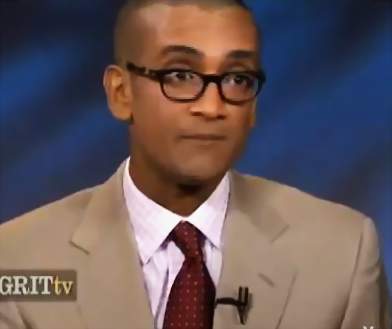
Law and Disorder Barack Obama Series – CCR Staff Attorney Shane Kadidal
We’re joined by Center for Constitutional Rights staff attorney Shane Kadidal to give us an overview on several critical topics we’ve been following over the years here on Law and Disorder. We look at what is happening in Guantanamo right now, the Obama policy of preventive detentions and the state of Habeas Corpus in the United States. In January of 2009 Barack Obama issued orders to close Guantanamo Bay prison. There was talk of transferring prisoners to a supermax prison in the United States. Military tribunals move forward for Guantanamo prisoners.
Shane Kadidal:
- What we won is the right to get into court and challenge the legality of your detention. CCR won that in 2008
- Obama gets into office and says he’s going to close Guantanamo Bay Prison in a year.
- Obama to set up expert agency to decide what to do with people in Guantanamo prison
- About 50 cases have gone forward and we (CCR) won 72 percent of the cases
- About 180 left in Guantanamo. Obama has improved physical conditions for detainees in Guantanamo, but they’re still stuck there. Nothing much has changed, we see stasis, there isn’t much political movement.
- About a month into the administration, the Obama Department of Justice says our position is the same as the Bush administrations on Bagram AFB prison
- We’re taking the same legal position about executive power as the previous administration – state’s secrets about rendition
- Six hundred people in Bagram right now. Bagram is an active war zone, can’t have courts interferring
- About 30 of the remaining 180 in Guantanamo will be charged. Most of the people brought there were innocent. The victim of profiling policies.
- General Stone says 400 of the 600 hundred in Bagram Prison have done nothing and should be released immediately. Task Force report on Guantanamo prisoners. 10 percent leaders of Al-Qaeda, 20 percent had a logistics role, others are low level soldiers. This is false.
- There are innocent people in Guantanamo, who have been there for 8 years.
- We still have a military commissions, an indefinite detention system. Lieberman proposing to strip citizenship from terrorism suspects so they can be interrogated without Miranda warnings.
- Moving Guantanamo Prison to Thomson Prison in Illinois.
- Obama as committed to removing checks on executive power
Guest – Shane Kadidal senior managing attorney of the Guantánamo Global Justice Initiative at the Center for Constitutional Rights in New York City. He is a graduate of the Yale Law School and a former law clerk to Judge Kermit Lipez of the United States Court of Appeals for the First Circuit.
Past shows with Shane Kadidal
Civil Liberties, Human Rights, Torture, Truth to Power
Podcast: Play in new window | Download

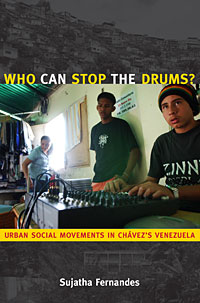
Who Can Stop the Drums?: Urban Social Movements in Chávez’s Venezuela
Who Can Stop the Drums?: Urban Social Movements in Chávez’s Venezuela is the title of Sujatha Fernandes’s new book. Sujatha is an author and assistant Professor of Sociology at Queens College and the Graduate Center, City University of New York. Her book looks at the transformations under way in Venezuela that are shaped by negotiations between the Chávez government and social movements using their own forms of historical memory and local organization. In her book, Sujatha shows everyday life and politics in the shantytowns of Caracas from the perspective of community-based radio, barrio assemblies, and the many interviews she conducted with activists and government officials. Most of the barrio activists in the book are Chávez supporters.
Sujatha Fernandes:
- There’s a real push back against neo-liberal reforms. Chavez who came into office in 1998, have been pursuing an anti-neoliberal agenda, trying to reverse the privatization and extend the social welfare net.
- The argument I make in the book is that Chavez has carved out a space within the global economy and Venezuela is a hybrid state containing both neo-liberal and anti-neoliberal elements.
- Who are these people, the large majority who live in the shanty towns, what do they think?
- The movements date back to before Chavez, the guerilla movements, cultural and community based groups. They trace their trajectory back to a long struggle in Venezuela. They’ve been reinvigorated by Chavez.
- The community based groups demand the very basics, running water, gas and electricity.
- Chavez in the middle between community groups and elite. Chavez has created institutions such as the missions, where some oil profits bypass the elite and toward community groups.
- I lived in a popular housing building, which are projects, (security problems, with gangs, violence and police)
- Bolivarian circles, Chavez’s first attempts to transfer power. 93 percent of Venezuelans are urbanized.
Guest – Sujatha Fernandes is Assistant Professor of Sociology at Queens College and the Graduate Center, City University of New York. She is the author of Cuba Represent! Cuban Arts, State Power, and the Making of New Revolutionary Cultures, also published by Duke University Press.
—-
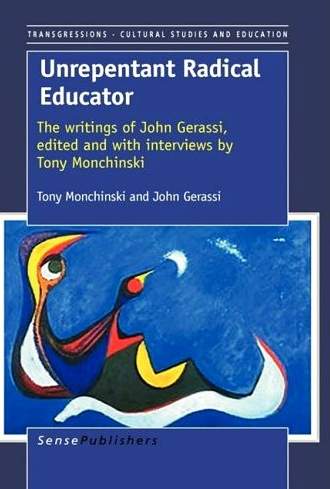
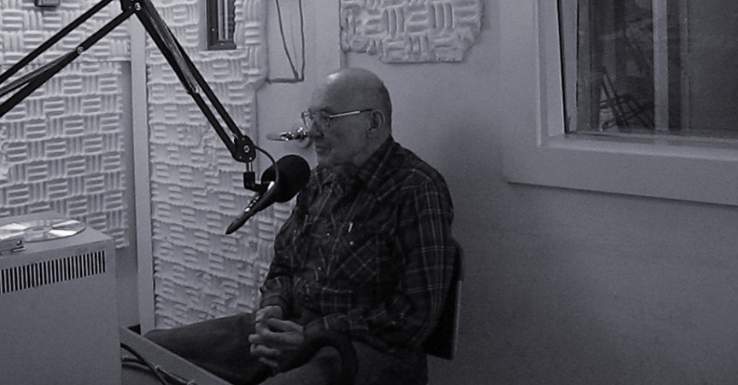
Unrepentant Radical Educator: The Writings of John Gerassi
We’re delighted to welcome back Professor John (Tito) Gerassi, once an editor at Time magazine, then at Newsweek. He obtained his PhD at the London School of Economics and Political Science. He is a long time civil rights and anti-war militant and author / editor of ten books plus scores of articles and pamphlets published on both sides of the Atlantic. He is currently Professor of Political Science at the City University of New York. We talk with Tito today about his recent book, Unrepentant Radical Educator: The writings of John Gerassi, edited and with interviews by Tony Monchinski (Transgressions: Cultural Studies and Education) Indypendent Book Review
The book joins personal narratives from Gerassi’s days of journalism and activism, featuring Che Guevara, Fidel Castro, Jerry Rubin, Eldridge Cleaver and others of the era, with essays on figures such as Sartre, Camus, and Julius and Ethel Rosenberg. One review writes, ( Especially fascinating are the tales of deliberate misreporting by the major media outlets for which he worked, epitomized by the words of owner Henry Luce when Gerassi was hired: “We here at Time believe that objectivity is neither feasible nor desirable.”)
John “Tito” Gerassi:
- Time Magazine: I hear you’re coming aboard Mr. Gerassi. In the long run, it was great that I got kicked out
- Met Che Guevara in Uruguay, as a journalist for the New York Times, there was a fight with anti-Castro students, the police were scared, one man fired his gun in the air, it ricocheted and hit and killed a USIS Cuban.
- Che told me I don’t talk to the imperialist press. At the hotel, they had reserved a large table where all the left-wing characters sat around with Che. Argentines say chez vous, that’s how Che got his nickname Che.
- The Great Fear in Latin America – John Gerassi
- Che Where Are You? Eventually there will be many Che’s.
Guest – Professor John Gerassi, once an editor at Time magazine, then at Newsweek, who obtained his PhD at LSE, is a long time civil rights and anti-war militant. He is the author or editor of ten books and scores of articles and pamphlets published on both sides of the Atlantic. He is currently Professor of Political Science at the City University of New York.
———————————————–
CIA Sponsored Terror, Civil Liberties, Criminalizing Dissent, Habeas Corpus, Human Rights, Surveillance, Torture, Truth to Power
Podcast: Play in new window | Download
Updates:
—-
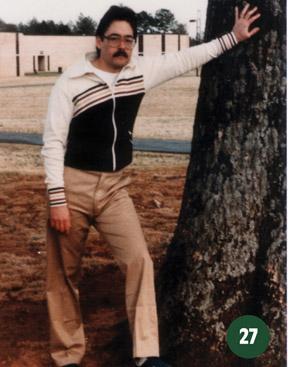

Puerto Rican Political Prisoner Released Today After 30 Years
Last week Puerto Rican community activist Carlos Alberto Torres was released from a federal prison in Pekin, Ill after serving 30 years as a political prisoner. Torres was convicted of seditious conspiracy – conspiring to use force against the lawful authority of the United States over Puerto Rico. Torres was punished for being a member of an armed clandestine organization called the FALN – Fuerzas Armadas de Liberación Nacional (English: “Armed Forces of National Liberation) which had claimed responsibility for bombings in Chicago that resulted in no deaths. He wasn’t accused of the bombings only of being a member of FALN.
In 1898 Puerto Rico was ceded to the US by Spain as war bounty in the treaty that ended the Spanish-American War. Still, the US has occupied it since. Torres was sentenced to 78 years in prison but used international law in his defense. Torres argued that the courts of the colonizing country may not criminalize captured anti-colonial combatants, but must turn them over to an impartial international tributnal to have their status adjudicated.
There was an outpouring of support to free Carlos. His attorney, National Lawyers Guild member Jan Susler of Chicago, notes, “Carlos is being released from prison due to the unflagging support of the Puerto Rican independence movement and others who work for human rights. The more than 10,000 letters of support from the U.S., Puerto Rico, Mexico and other countries sent a strong message to the Parole Commission.”
Jan Susler:
- Carlos got a disproportionate sentence, a punishment for who he was politically. He did 30 years, standing tall and maintaining his political integrity.
- People stop him on the street, and embrace him.
- The bombing in which he was accused of was only property damage. If he had killed or injured someone and convicted as a social prisoner, he would gotten a less sentence and served far less time.
- He was always treated more harshly than the other prisoners.
- Right after 9/11, the US rounded up political prisoners and put them in the hole for months.
- You’re always watched, you’re always monitored. Every prisoner has access to email, Carlos did not.
Carlos Torres:
Guest – Attorney Jan Susler joined People’s Law Office in 1982 after a six year stint as Clinical Law Professor at Prison Legal Aid, the legal clinic at Southern Illinois University’s School of Law. Her long history of work on behalf of political prisoners and prisoners’ rights includes litigation, advocacy and educational work around USP Marion and the Women’s High Security Unit at Lexington, KY. Her practice at PLO focuses on police misconduct civil rights litigation, which has lately included wrongful conviction litigation on behalf of people exonerated after serving many years in prison, innocent. Her work with the Puerto Rican Independence Movement and with progressive movements challenging U.S. foreign and domestic policies has been a constant throughout her 30 years as a lawyer.
Guest – Carlos Alberto Torres member of Puerto Rico’s independence movement and the longest-serving Puerto Rican political prisoner. He was convicted and sentenced to 78 years in a U.S. federal prison for seditious conspiracy – conspiring to use force against the lawful authority of the United States over Puerto Rico. He served 30 years, being released on July 26, 2010.
—-
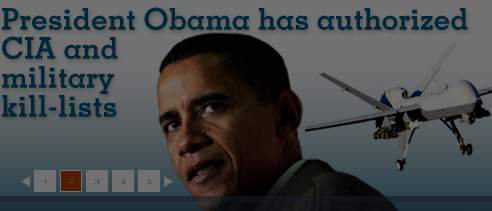
CCR and ACLU Sue Obama Over Limits On Lawyers Seeking To Represent Suspect on Administration “Kill List”
The Center for Constutional Rights and the ACLU have filed a lawsuit challenging the Obama administration’s authority to use the military and the CIA to kill the radical Muslim cleric Anwar al-Awlaki. He’s an American citizen, accused of terrorism but hasn’t recieved a trial. He is believed to be hiding in Yemen. Because it would be against the law to challenge the government’s attempt to kill al-Awlaki, the lawsuit was filed against the Treasury department, that challenged a regulation that would require the Center and the ACLU to obtain its permission in order to provide uncompensated legal services for Mr al-Awlaki.
Vince Warren, the executive director of the Center for Constitutional Rights, argued that international law did not permit a government to kill people far from combat zones, and in the case of a US citizen, Vince said that such a policy also violates the Constitution’s Fifth Amendment — and is a dangerous precedent.
CCR Attorney Pardiss Kebriaei:
- The case that we filed last week was a challenge to a regulatory scheme under the Department of Treasury and OFAC which prohibits transactions with anyone designated as a terrorist by the government. That includes pro-bono legal services.
- Al-Awlaki is the subject of an assassination order by the president, ordering and authorizing the CIA and Special Forces to target and kill him.
- OFAC powers go back to the 1970s IEEPA, the International Emergency Economic Powers Act.
- All we have against this guy are allegations.
- The CIA, which is one of the agencies that carries out these killings has primarily used drones. We think that drones would be the primary way that this killing would be carried out.
Guest – CCR staff attorney Pardiss Kebriaei joined the Guantánamo Global Justice Initiative at the Center for Constitutional Rights (CCR) in July 2007. She provides direct representation to several of CCR’s clients at Guantánamo and helps coordinate CCR’s network of hundreds of pro bono counsel representing other prisoners. She also focuses on using international human rights mechanisms to bring international pressure to bear on the U.S. government and hold other governments accountable for their role in the violations at Guantánamo.
———-
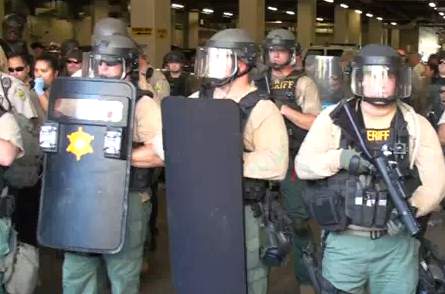
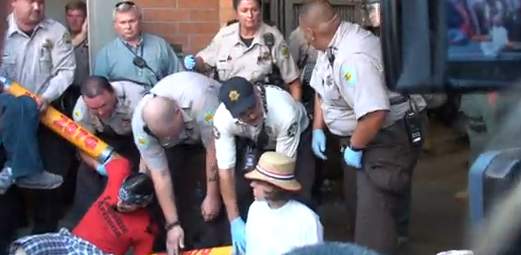
CCR Attorney Legal Observer Arrested in Arizona Immigration Protests
Legal observers from the National Lawyers Guild and the Center for Constitutional Rights were arrested last week during mass demonstrations of protesters who opposed Federal law 287G, Arizona law SB 1070. What happened? CCR Legal Director Bill Quigley told the media, Arizona is starting to act like Mississippi in the civil rights days. Among those arrested were National Lawyers Guild officer Roxana Orrell and CCR staff attorney Sunita Patel.
Sunita Patel:
- It was my first time in Maricopa County. Sheriff Joe Arpaio is known for branding the most horrible incarnation of 287G and ICE police collaboration.
- 287G is the statute by which this program is authorized by Congress. He also has what’s called a secure communities program which allows for the identification of anyone who is a non-citizen through a finger printing system. 287G allows for local agencies to implement immigration law through a memorandum of understanding with the federal government.
- At the same time he implements what’s called “crime suppression sweeps” Where he takes his units and regular citizens to sweep through neighborhoods.
- I spent the night in jail, I hadn’t planned on it. It was really an honor to be in solidarity with the rest of the protesters. I was charged with obstruction of a highway and public thoroughfare and failure to obey a police officer. People in Arizona call it a war zone when it comes to immigration enforcement.
- Arizona has also become the site for a spark of incredible activism and the growth of an incredible human rights movement.
Guest – CCR Staff Attorney Sunita Patel with racial profiling, immigrant rights and other human rights litigation. Prior to her position at CCR, she held a Soros Justice Fellowship at The Legal Aid Society, Immigration Law Unit in New York where she represented immigrant detainees in removal proceedings and worked with criminal justice and human rights groups to create independent community oversight for detention operations through public accountability boards. Sunita is a former law clerk for the Honorable Judge Ivan L. R. Lemelle in the Eastern District of Louisiana.
————————————————————————————————













